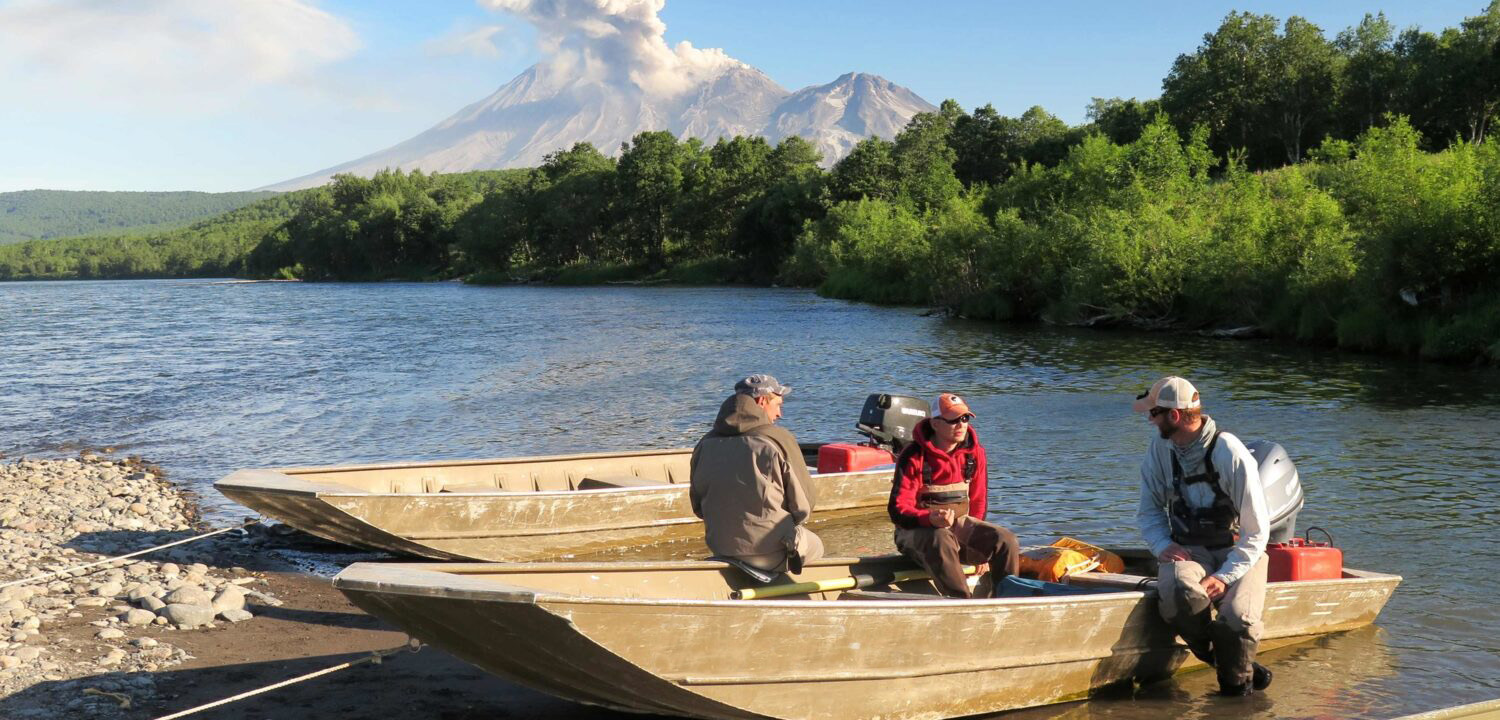WSC joins a growing list of international conservation organizations banned from working in Russia.
Today, the Prosecutor General’s Office of the Russian Federation announced that the Wild Salmon Center has been designated as an “undesirable organization” within Russian territories. This means that it is now illegal for Russian organizations and individuals to work with WSC. The World Wildlife Fund, Greenpeace, the Altai Project, and other international organizations have also recently been designated by the Russian government as “undesirable” organizations. Below is WSC’s statement in response to its “undesirable” designation from the Russian government.
Wild Salmon Center is the leading group working with scientists, governments, and local people to protect wild salmon strongholds—the healthiest remaining wild salmon rivers around the entire North Pacific.
Wild salmon know no borders. And because of that, we work across four nations: from the U.S. Pacific Northwest, through British Columbia, Canada, the U.S. State of Alaska, and across to the Russian Far East and Japan.
We focus on salmon, an iconic and powerful conservation symbol, and a keystone species. By protecting salmon, we safeguard whole watersheds and everything in them, including human communities.
Our work has always prioritized the needs of local communities and the wild salmon they depend on.
Today is a sad day for salmon-dependent communities in Russia and around the Pacific.
The Russian Far East is one of the most important centers of wild salmon abundance left on Earth. Forty percent of the remaining wild salmon on the planet originate in Russia. For 30 years, we have proudly worked side by side with Russian scientists and the Russian government at the federal, regional, and local level to improve the health of salmon rivers. These efforts included conducting scientific research, facilitating U.S.-Russia exchanges, reducing illegal fishing, improving commercial fisheries management, conserving habitat, and promoting angling tourism.
For decades, we collaborated under the bilateral Area V agreement allowing cooperative scientific research between the U.S. and Russia.
With Russian scientists, we have conducted leading research on taimen and steelhead in the Russian Far East.
We have supported Russian fishermen in improving their practices in order to access international markets, through the Marine Stewardship Council certification process.
Wild Salmon Center employees have never participated in the political process nor worked to block economic development in the Russian Far East.
We dispute the veracity of the charges against us and look forward to clearing them up and getting back to work.
We will always keep in mind our friends and colleagues around the North Pacific and their quest for clean water, healthy fisheries, and wild places to call home.
MEDIA CONTACT:
Oakley Brooks
Wild Salmon Center Communications Director
obrooks@wildsalmoncenter.org


